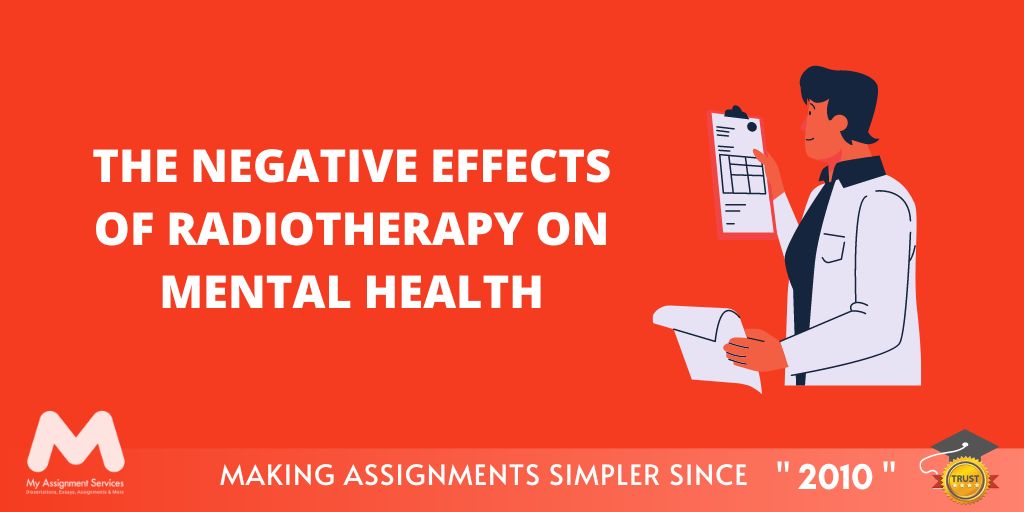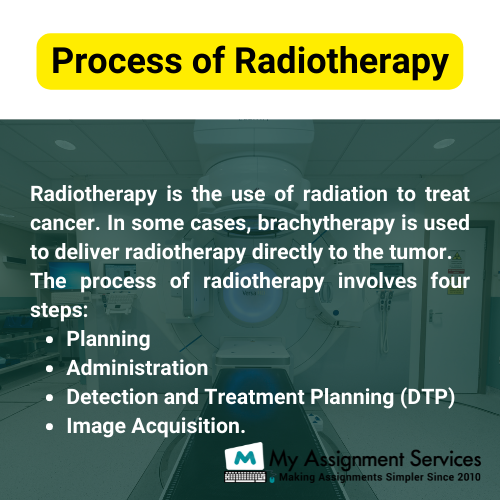
Many people are reluctant to undergo cancer treatment due to fears of its long-term health effects. There is still no cure for brain cancer, but many people with this condition live on for years after their diagnosis. If you have been diagnosed with brain cancer and are considering radiotherapy as part of your treatment plan, you may have wondered what effects it will have on your mental health. In this blog, we'll discuss some ways you can help improve your mental health if you're having difficulty coping with your situation.
Most of us believe that radiation treatments are safe. However, many people have suffered from post-radiation syndrome. It is a condition that occurs after exposure to high doses of ionizing radiation, usually brachytherapy, involving the implantation of radioactive seeds in the womb or chest cavity. This condition can lead to effects such as headaches, fatigue, and depression.
According to the NHS and World Health Organization research, 1 in 285 people in the UK is affected by cancer. The shocking statistic includes children, teenagers, and young adults. The treatment itself can often cause serious side effects. Those suffering from Radiotherapy should be aware of these potentially negative feelings that stem from suffering burns to their brain and nervous system.
People often hear the term radiotherapy and think of cancer. However, radiotherapy is a broader term that covers the treatment of a range of physical conditions with the use of radiation. The American Cancer Society uses the term Radiotherapy, while others refer to radiotherapy as x-ray therapy or beams. Nearly everyone who receives radiotherapy will experience some side effects, such as nausea or vomiting, after treatments. But many people feel that side effects are inevitable and can be forgotten once they start feeling better.
Over the past few decades, Radiotherapy is employed as a treatment for cancers. It uses high-energy X-rays to destroy cancer cells without causing the spread. Radiotherapy is carried out using external beams or by surgically inserting a tiny radioactive source into the body, either of which may be used alone or in combination with other types of treatment.

Radiotherapy has been used for over half a century to treat most types of cancer. It kills only the cancer cells and not the healthy tissue around them, so it does not damage healthy cells or nearby organs. Radiotherapy is often used after surgery that involves dissecting cancer cells. Radiotherapy destroys the remaining cancer cells in the body. Sometimes, radiotherapy is also used before surgery to shrink tumours before removal during surgery.
Radiotherapy may be used alone or in combination with surgery, chemotherapy, or other treatments. It is usually given in three phases:
This phase is done before the actual treatment. During this phase, you will have an X-ray examination, which will determine whether your body can tolerate the type of radiation that will be used during your next phase.
This phase consists of high doses of radiation delivered over several days or weeks, depending on your situation. Radiation may be directed to the tumour itself or it may be directed to nearby healthy tissue.
After receiving radiotherapy, your doctor may recommend that you have a check-up to assess how well it worked and to make sure there are no side effects from the treatment.
Radiation can be delivered in several ways:
Radiotherapy uses high-energy rays to kill cancer cells, which can have negative impacts too. It's often given to treat various types of cancer, including brain tumours, prostate cancer, and Hodgkin's lymphoma.
Radiotherapy can cause side effects because it can damage healthy cells as well as malignant ones. This can lead to long-term problems like infertility (for women) or heart disease (for men).
But there are some side effects that you should be aware of if you're getting Radiotherapy for your brain tumour. Here's what they are:
Radiation may decrease your immune system's ability to fight off infections and diseases. This may cause you to get sick more often or have more serious symptoms when you do get sick.
Radiation can cause problems with thinking or memory. You may notice that you have trouble concentrating or remembering things. You may also find that you have more difficulty learning new information than before treatment starts.
Radiotherapy can damage the retina and optic nerve, which are located at the back of your eye. This can lead to vision loss or blindness.
Radiation has been shown to cause nausea, vomiting, diarrhea, and headaches in some patients who receive Radiotherapy for their brain tumours.
Radiotherapy can also trigger headaches in some people. These may be mild or severe, depending on how much radiation the patient receives over time.
Radiotherapy can also affect the mouth and throat area, causing dryness or irritation to these tissues. This can lead to sores and ulcers, which may cause pain or bleeding if they get irritated.
Radiotherapy can also cause a loss of appetite in some patients. This is more common in people who have received radiation treatment for their head and neck cancer than those with brain tumours.
Fatigue is a common side effect of radiation treatment. It can begin as soon as one week after treatment starts and may last for several months afterward. Fatigue may be caused by the loss of white blood cells, which are responsible for fighting infection and inflammation.
Pain is a common side effect of radiation treatment. It can begin as soon as one week after treatment starts and may last for several months afterward. The pain may be caused by damage to tissues in your body, including skin and muscle tissue in the area being treated, or by the effects of radiation on nearby nerves that control sensations in your skin.
Radiation treatment can confuse some people, especially if they have an underlying mental illness such as anxiety or depression. If you experience confusion after Radiotherapy, talk to your doctor about treatment options that may help alleviate it.

Medical students need to carry out assignments that are not only based on theories or concepts but also practical and experimental. That's why students are unable to carry out the assignment and start to seek medical assignment assistance. To bridge the gap, My Assignment Services provides assignment writing services for students that help them complete their medical assignments easily. The experts guide the students through the process of writing their assignments and help them to learn and grow. So, if you are someone who needs medical assignment help, then contact My Assignment Services now. Reach out to us by just filling up a form and soon you will get a call from us.
Also Read : How To Prepare Interactive Nursing E-Portfolio And Get Better Opportunities?

Hi! I am a passionate writer with 3 years of experience in academic writing and over 2 years of experience as a professional blogger. I aim to provide academic solutions which add to the grades of the students as well as to their learning. I’m working with My Assignment Services since 3 years, during which I have always worked for the benefit of the students by providing them quality work.
1,212,718Orders
4.9/5Rating
5,063Experts
Turnitin Report
$10.00Proofreading and Editing
$9.00Per PageConsultation with Expert
$35.00Per HourLive Session 1-on-1
$40.00Per 30 min.Quality Check
$25.00Total
FreeGet
500 Words Free
on your assignment today
Get
500 Words Free
on your assignment today
Trending now
The Student Corner
Subscribe to get updates, offers and assignment tips right in your inbox.
Popular Posts
Popular Posts
Doing your Assignment with our samples is simple, take Expert assistance to ensure HD Grades. Here you Go....
Speak directly with a qualified subject expert.
Get clarity on your assignment, structure, and next steps.
In this free session, you can:
Loved reading this Blog? Share your valuable thoughts in the comment section.
Add comment